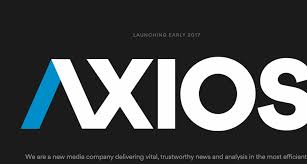
Ambulatory surgery centers (ASCs) are taking on more high-acuity, same-day procedures than ever before. This growth is driven by evolving clinical protocols, cost-conscious reimbursement strategies, and expanded capabilities in outpatient care. Specialties like orthopedics, spine, ophthalmology, and cardiovascular care are moving more complex cases—and the implants that come with them—out…

Once limited to hospital inpatient settings, total joint surgery is increasingly common at ambulatory surgery centers (ASCs) across the US. What is not so common is performing these complex procedures without the benefit of an onsite sterile processing department (SPD). And yet, that is exactly what we have accomplished at…

Editor’s Note: This page is a companion piece to the main article, Centralized sterile processing cuts costs, complexity for four ASCs. Implementing offsite sterilization is a major project. At Total Joint Specialists, our journey began gradually, growing in scope over time as the team became comfortable with the process…

Editor’s Note: This page is a companion piece to the main article, Emergency preparedness: Identifying essential supplies for unplanned surgical events. While the main article outlines the principles of emergency readiness and supply preparation in the OR, the posts below offer a closer look at two key implementation areas: Supply…

While most emergency surgical procedures are carried out uneventfully and safely, the OR is also a place where potentially life-threatening and least-expected instances can arise. Emergencies such as malignant hyperthermia, intraoperative cardiac arrest, and anaphylaxis can catch OR leaders and staff off guard. Perioperative teams need proper and adequate preparation…

Editor's Note Recent reporting from Axios reveals hospitals and health insurers are reporting new concerns about rising tariffs and trade policy uncertainty, with the former delaying purchasing decisions and the latter planning premium increases as a result. In the first article, published June 18, the outlet reports that health system…

Editor's Note Eliminating the Federal Emergency Management Agency’s (FEMA’s) key disaster preparedness grants could weaken hospital infrastructure and jeopardize care during future crises, according to a May 5 report in Modern Healthcare. As detailed in the article, the Trump administration has cut $3.3 billion in annual funding by ending the…

Editor's Note Medtech companies are scrambling to contain the financial damage from rising tariffs without passing costs onto hospitals, according to a May 2 report in Modern Healthcare. Executives from industry leaders including Johnson & Johnson, GE HealthCare, and Intuitive Surgical outlined mitigation efforts during recent earnings calls, with most…

Editor's Note Terry A. Bohlke, MSHA, CPA, CMA, CASC, emphasized that Rocky Mountain High Surgery Center is a pseudonym “to protect the innocent,” but the numbers he presented at the 2025 Ambulatory Surgery Center Association (ASCA) Conference & Expo in Denver last week were real enough. Based on actual scenarios…

In the OR, precision and focus can mean the difference between life and death. However, surgical patient outcomes hinge on more than the competence of those working in these inherently intense environments. Every procedure also depends on the laborious, behind-the-scenes efforts of the people responsible for ensuring every surgical instrument…